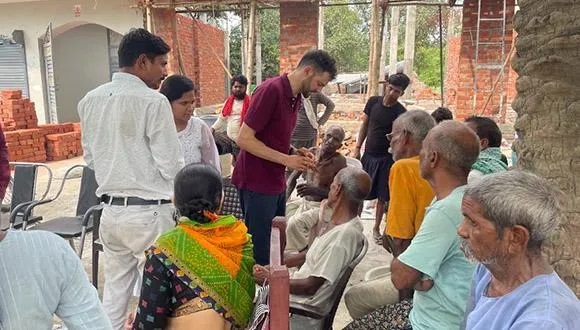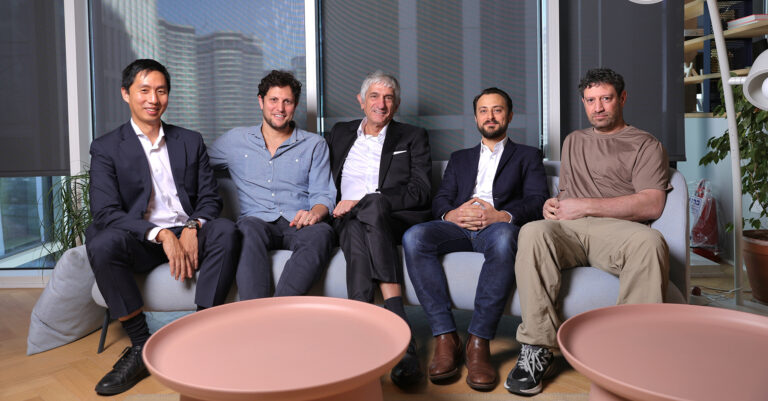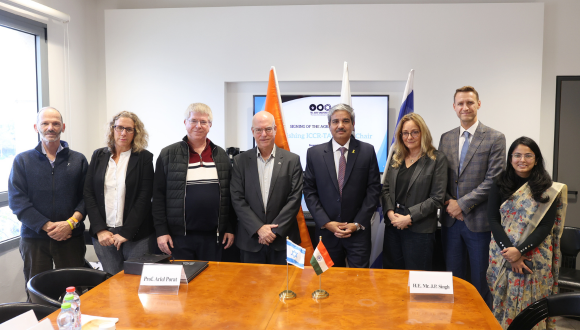Femmes et science : Weizmann (Israël) lance un nouveau cours pour encourager ses chercheuses

[:fr]
La présence féminine dans le domaine scientifique est en augmentation mais reste minoritaire. A l’Institut Weizman, 85% des chefs de laboratoires sont des hommes bien que 70% des doctorants en sciences de la vie soient des femmes. Les périodes de grossesses, qui surviennent généralement durant le doctorat, sont souvent des moments où les femmes renoncent à poursuivre plus loin leur carrière. C’est dans ces périodes que des conseils peuvent s’avérer décisifs et un des objectifs du cours est d’aider les femmes à partager leurs expériences. « Quand une étudiante a le sentiment que sa situation est impossible, même si ça ne l’aide pas directement à résoudre son problème spécifique, le fait de savoir que d’autres femmes – des femmes qui ont ensuite réussi dans leur carrière – ont traversé les mêmes difficultés lui donne une certaine perspective » explique Nirit Dudovich.
Un des sujets sur lesquels les enseignantes insistent également au cours des six rencontres est le fait de bien communiquer avec ses supérieurs de façon à définir des objectifs réalistes. D’autre part, une réflexion est menée pour encourager les femmes à construire leur propre interprétation du succès professionnel et être moins sensibles aux attentes des autres. Maya Schuldiner explique : « Nous appartenons à une culture où, en tant que femmes, nous sommes poussées à être perfectionnistes. Etre la meilleure mère du monde, être la meilleure scientifique. Ce que nous disons c’est : vous n’avez pas besoin d’être la meilleure ni d’un côté ni de l’autre. Vous pouvez être heureuse de la façon dont vous êtes mère, heureuse de la façon dont vous faites de la science, et combiner les deux d’une façon qui est optimale pour vous et non pas pour le monde extérieur ».
Le message que les trois organisatrices espèrent transmettre à leurs étudiantes est qu’elles sont l’unique propriétaire de leur carrière. « On entend dire qu’essayer de combiner famille et carrière, c’est faire de la science comme une femme. D’après nous c’est une bonne chose, faites de la science comme une femme ! »
Source diplomatie.gouv.fr – auteur : Tirtsa Ackermann, Doctorante, Université hébraïque de Jérusalem
[:en]Even today, in 2016, the decision to become a parent carries a heavier burden for women, particularly those who wish to have a career. For scientists combining motherhood with building a career in science, this can be overwhelmingly challenging: Both society and workplace demand that they be at their best at all times. Three accomplished professors at the Weizmann Institute of Science understand this dilemma firsthand, which is why they created a course for female students who are expecting or are considering starting a family.
Profs. Maya Schuldiner of the Molecular Genetics Department, Nirit Dudovich of the Physics of Complex Systems Department and Michal Sharon of the Biomolecular Sciences Department were discussing the challenges their female students undergo as they move from childlessness to motherhood, and they reflected on the difficulties they had experienced during this time in their lives.
The three professors approached Prof. Daniella Goldfarb, the President’s Advisor for Advancing Women in Science, who was happy to allocate funds for the course. They then consulted Orit Viterbo, Head of Social Work at the Institute, and she joined them in the planning and execution of the course. Finding interested participants for the course was the easy part; the difficulty was in having to turn away others. To maintain an intimate and open environment, the course is limited to twenty women.
The course consists of six sessions, in which the young women are taught practical solutions for managing their career and family life, emphasizing the need to maintain open communication with their advisors and set realistic expectations. Decision making is another area they work on, as is learning to define their own interpretation of success and learning to pay less attention to the expectations of others.
Although the presence of women in the field of science has seen notable increase, there is still much progress to be made. At the Weizmann Institute 85 percent of the principal investigators are male. In the life sciences 70 percent of the PhD students are female, but they make up only 15 percent of the principal investigators. The childbearing period is also the critical juncture where women often decide not to proceed to the next stage in a scientific career. Indeed, many women at the Weizmann Institute of Science have their children while they are doctoral students. According to Schuldiner quite a few women obtain advanced degrees; it is the lack of support just when they are deciding whether to continue that often leads them to abandon their careers. This, she says, is why the course is vital. The women who participate are learning how to navigate a challenging situation, but during this process they also become confidantes who encourage one another and continue to meet after the conclusion of the course.
Schuldiner, Dudovich and Sharon all say that the biggest lesson they hope the participants will take away is that they are the sole proprietors of their careers. Balancing motherhood and a scientific career is difficult, but with the correct approach it is doable and can be very successful.
[:]







